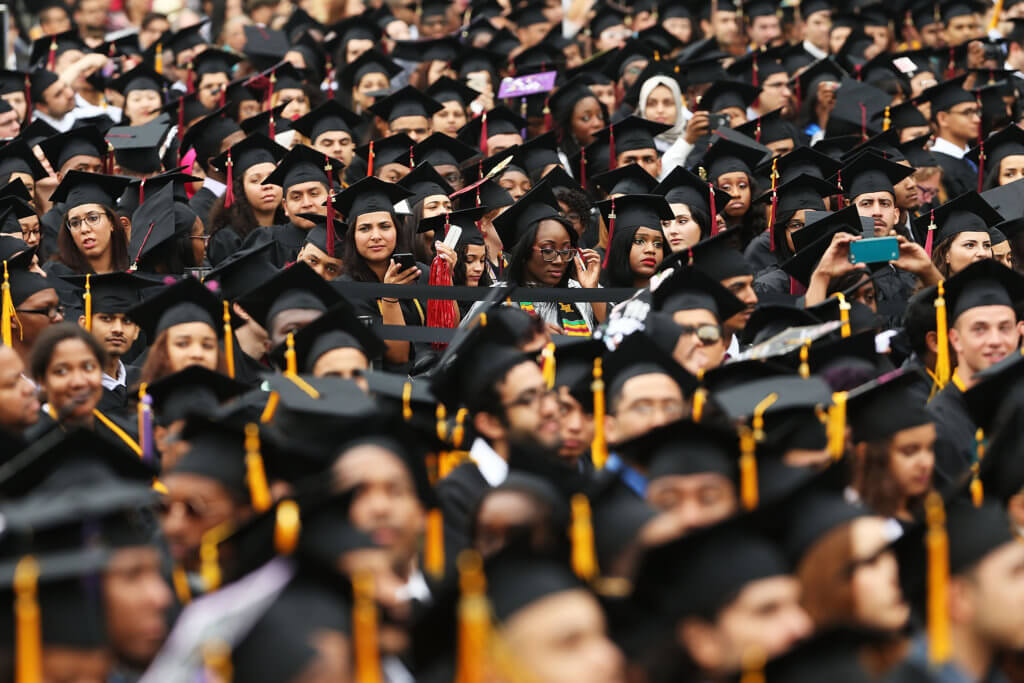
Upon graduation from high school or college, many individuals face the difficult decision of whether to continue their education or gain work experience. Some insist that considering the rising cost of degree fees, an undergraduate degree will create debt and a postgraduate degree will just add to it. However, many fail to consider the reality of stagnant real wages and distorted unemployment rates.
As of September 2020, the US unemployment rate stood at about 7.9%, according to the Bureau of Labor Statistics. The current high rate is partially due to the economic impact of the global coronavirus pandemic; before the crisis hit in March, it was 3.5%.
In 2019, the unemployment rate for graduates with a bachelor’s degree was 2.2% compared to 2.0% for master’s degree holders. The median weekly earnings for those with a bachelor’s degree were US$1,248 versus US$1,497 for those with a master’s degree, which shows the value of a postgraduate degree. Some fields, such as education and psychology, require master’s degrees and beyond just for entry-level positions.
Forbes confirmed the importance of higher education earlier this year, stating that individuals will need more and better qualifications to get a job in 2027. These findings show that individuals should consider a number of factors when deciding to invest further in their education.
With all this in mind, many wonder what exactly the differences are in terms of cost when weighing out their options and planning their academic careers. To make the planning process easier, here’s a quick breakdown of undergraduate, postgraduate, and doctorate degree fees:
Undergraduate degree fees
According to US News data, the average tuition cost has dropped in the 2020-21 academic year over the prior year across both public and private schools. The data also shows that the average cost of tuition and fees at a ranked in-state public college is about 72% less than the average sticker price at a private college, at US$9,687 for the 2020-2021 year compared with US$35,087. Undergraduate degrees usually take four years to complete.
Depending on the college or university they decide on, most students are eligible for tuition fee loans which can cover the full cost. Another option is a maintenance loan which covers living expenses such as food and rent, usually depending on where you are from and your household income.

Graduating students participate in commencement exercises at City College where First lady Michelle Obama delivered the commencement speech. Source: Spencer Platt/Getty Images/AFP
Postgraduate degree fees
Master’s fees at public – or “state” – universities are usually lower than private alternatives, with prices offset by state funding. Public universities also base fees on a student’s residency, with students from out-of-state paying at a higher rate (this also applies to international students).
There’s still plenty of variation in public university fees, but, as a rule, you can expect to pay anywhere between US$20,000 and US$60,000 per year for a master’s programme, which usually takes between a year or two to complete. It is costly to most, but you can take comfort in knowing most larger universities maintain scholarship and assistantship packages to support students in need. This funding is usually available to students regardless of nationality, but some awards may be reserved to support domestic or international applicants.
Doctorate graduate fees
The cost of a Ph.D. can vary between US$28,000 to US$40,000 per year, but many students find that they can get funding for much, or all, of their costs. These degrees usually take four to six years to complete.
It is important to do your research before applying to ensure you meet the deadline. Some Ph.D. students will receive a stipend from their institution with an assistantship position, but this varies between institutions and between the departments within. Students could also look into applying for government-funded doctoral loans.










